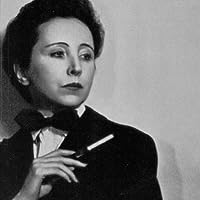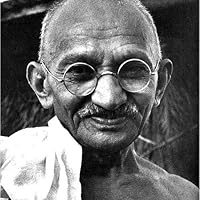Civilization Quotes
Quotes tagged as "civilization"
Showing 1-30 of 1,266

“We seldom realize, for example that our most private thoughts and emotions are not actually our own. For we think in terms of languages and images which we did not invent, but which were given to us by our society.”
―
―

“How dreadful are the curses which Mohammedanism lays on its votaries! Besides the fanatical frenzy, which is as dangerous in a man as hydrophobia in a dog, there is this fearful fatalistic apathy. The effects are apparent in many countries. Improvident habits, slovenly systems of agriculture, sluggish methods of commerce, and insecurity of property exist wherever the followers of the Prophet rule or live. A degraded sensualism deprives this life of its grace and refinement; the next of its dignity and sanctity. The fact that in Mohammedan law every woman must belong to some man as his absolute property – either as a child, a wife, or a concubine – must delay the final extinction of slavery until the faith of Islam has ceased to be a great power among men. Thousands become the brave and loyal soldiers of the faith: all know how to die but the influence of the religion paralyses the social development of those who follow it. No stronger retrograde force exists in the world. Far from being moribund, Mohammedanism is a militant and proselytizing faith. It has already spread throughout Central Africa, raising fearless warriors at every step; and were it not that Christianity is sheltered in the strong arms of science, the science against which it had vainly struggled, the civilisation of modern Europe might fall, as fell the civilisation of ancient Rome.”
― The River War
― The River War
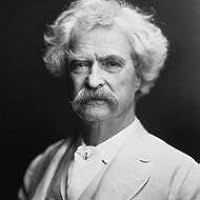
“There are many humorous things in the world; among them, the white man's notion that he is less savage than the other savages.”
― Following the Equator: A Journey Around the World
― Following the Equator: A Journey Around the World

“Books are the carriers of civilization. Without books, history is silent, literature dumb, science crippled, thought and speculation at a standstill. Without books, the development of civilization would have been impossible. They are engines of change (as the poet said), windows on the world and lighthouses erected in the sea of time. They are companions, teachers, magicians, bankers of the treasures of the mind. Books are humanity in print.
[Bulletin of the American Academy of Arts and Sciences, Vol. 34, No. 2 (Nov. 1980), pp. 16-32]”
―
[Bulletin of the American Academy of Arts and Sciences, Vol. 34, No. 2 (Nov. 1980), pp. 16-32]”
―

“...But the Mahommedan religion increases, instead of lessening, the fury of intolerance. It was originally propagated by the sword, and ever since, its votaries have been subject, above the people of all other creeds, to this form of madness. In a moment the fruits of patient toil, the prospects of material prosperity, the fear of death itself, are flung aside. The more emotional Pathans are powerless to resist. All rational considerations are forgotten. Seizing their weapons, they become Ghazis—as dangerous and as sensible as mad dogs: fit only to be treated as such. While the more generous spirits among the tribesmen become convulsed in an ecstasy of religious bloodthirstiness, poorer and more material souls derive additional impulses from the influence of others, the hopes of plunder and the joy of fighting. Thus whole nations are roused to arms. Thus the Turks repel their enemies, the Arabs of the Soudan break the British squares, and the rising on the Indian frontier spreads far and wide. In each case civilisation is confronted with militant Mahommedanism. The forces of progress clash with those of reaction. The religion of blood and war is face to face with that of peace.”
― The Story of the Malakand Field Force
― The Story of the Malakand Field Force
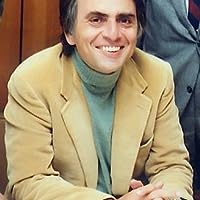
“Books permit us to voyage through time, to tap the wisdom of our ancestors. The library connects us with the insight and knowledge, painfully extracted from Nature, of the greatest minds that ever were, with the best teachers, drawn from the entire planet and from all our history, to instruct us without tiring, and to inspire us to make our own contribution to the collective knowledge of the human species. I think the health of our civilization, the depth of our awareness about the underpinnings of our culture and our concern for the future can all be tested by how well we support our libraries.”
― Cosmos
― Cosmos

“Civilization will not attain to its perfection until the last stone from the last church falls on the last priest.”
―
―
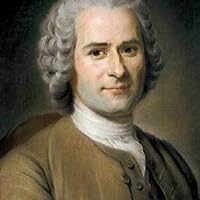
“The first man who, having enclosed a piece of ground, bethought himself of saying This is mine, and found people simple enough to believe him, was the real founder of civil society. From how many crimes, wars and murders, from how many horrors and misfortunes might not any one have saved mankind, by pulling up the stakes, or filling up the ditch, and crying to his fellows, "Beware of listening to this impostor; you are undone if you once forget that the fruits of the earth belong to us all, and the earth itself to nobody.”
― Discourse on the Origin of Inequality
― Discourse on the Origin of Inequality

“Civilized people must, I believe, satisfy the following criteria:
1) They respect human beings as individuals and are therefore always tolerant, gentle, courteous and amenable ... They do not create scenes over a hammer or a mislaid eraser; they do not make you feel they are conferring a great benefit on you when they live with you, and they don't make a scandal when they leave. (...)
2) They have compassion for other people besides beggars and cats. Their hearts suffer the pain of what is hidden to the naked eye. (...)
3) They respect other people's property, and therefore pay their debts.
4) They are not devious, and they fear lies as they fear fire. They don't tell lies even in the most trivial matters. To lie to someone is to insult them, and the liar is diminished in the eyes of the person he lies to. Civilized people don't put on airs; they behave in the street as they would at home, they don't show off to impress their juniors. (...)
5) They don't run themselves down in order to provoke the sympathy of others. They don't play on other people's heartstrings to be sighed over and cosseted ... that sort of thing is just cheap striving for effects, it's vulgar, old hat and false. (...)
6) They are not vain. They don't waste time with the fake jewellery of hobnobbing with celebrities, being permitted to shake the hand of a drunken [judicial orator], the exaggerated bonhomie of the first person they meet at the Salon, being the life and soul of the bar ... They regard prases like 'I am a representative of the Press!!' -- the sort of thing one only hears from [very minor journalists] -- as absurd. If they have done a brass farthing's work they don't pass it off as if it were 100 roubles' by swanking about with their portfolios, and they don't boast of being able to gain admission to places other people aren't allowed in (...) True talent always sits in the shade, mingles with the crowd, avoids the limelight ... As Krylov said, the empty barrel makes more noise than the full one. (...)
7) If they do possess talent, they value it ... They take pride in it ... they know they have a responsibility to exert a civilizing influence on [others] rather than aimlessly hanging out with them. And they are fastidious in their habits. (...)
8) They work at developing their aesthetic sensibility ... Civilized people don't simply obey their baser instincts ... they require mens sana in corpore sano.
And so on. That's what civilized people are like ... Reading Pickwick and learning a speech from Faust by heart is not enough if your aim is to become a truly civilized person and not to sink below the level of your surroundings.
[From a letter to Nikolay Chekhov, March 1886]”
― A Life in Letters
1) They respect human beings as individuals and are therefore always tolerant, gentle, courteous and amenable ... They do not create scenes over a hammer or a mislaid eraser; they do not make you feel they are conferring a great benefit on you when they live with you, and they don't make a scandal when they leave. (...)
2) They have compassion for other people besides beggars and cats. Their hearts suffer the pain of what is hidden to the naked eye. (...)
3) They respect other people's property, and therefore pay their debts.
4) They are not devious, and they fear lies as they fear fire. They don't tell lies even in the most trivial matters. To lie to someone is to insult them, and the liar is diminished in the eyes of the person he lies to. Civilized people don't put on airs; they behave in the street as they would at home, they don't show off to impress their juniors. (...)
5) They don't run themselves down in order to provoke the sympathy of others. They don't play on other people's heartstrings to be sighed over and cosseted ... that sort of thing is just cheap striving for effects, it's vulgar, old hat and false. (...)
6) They are not vain. They don't waste time with the fake jewellery of hobnobbing with celebrities, being permitted to shake the hand of a drunken [judicial orator], the exaggerated bonhomie of the first person they meet at the Salon, being the life and soul of the bar ... They regard prases like 'I am a representative of the Press!!' -- the sort of thing one only hears from [very minor journalists] -- as absurd. If they have done a brass farthing's work they don't pass it off as if it were 100 roubles' by swanking about with their portfolios, and they don't boast of being able to gain admission to places other people aren't allowed in (...) True talent always sits in the shade, mingles with the crowd, avoids the limelight ... As Krylov said, the empty barrel makes more noise than the full one. (...)
7) If they do possess talent, they value it ... They take pride in it ... they know they have a responsibility to exert a civilizing influence on [others] rather than aimlessly hanging out with them. And they are fastidious in their habits. (...)
8) They work at developing their aesthetic sensibility ... Civilized people don't simply obey their baser instincts ... they require mens sana in corpore sano.
And so on. That's what civilized people are like ... Reading Pickwick and learning a speech from Faust by heart is not enough if your aim is to become a truly civilized person and not to sink below the level of your surroundings.
[From a letter to Nikolay Chekhov, March 1886]”
― A Life in Letters

“It's in the morning, for most of us. It's that time, those few seconds when we're coming out of sleep but we're not really awake yet. For those few seconds we're something more primitive than what we are about to become. We have just slept the sleep of our most distant ancestors, and something of them and their world still clings to us. For those few moments we are unformed, uncivilized. We are not the people we know as ourselves, but creatures more in tune with a tree than a keyboard. We are untitled, unnamed, natural, suspended between was and will be, the tadpole before the frog, the worm before the butterfly. We are for a few brief moments, anything and everything we could be. And then...and then -- ah -- we open our eyes and the day is before us and ... we become ourselves.”
― Stargirl
― Stargirl
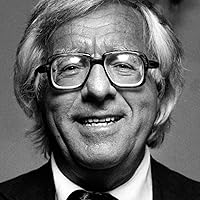
“Our civilization is flinging itself to pieces. Stand back from the centrifuge.”
― Fahrenheit 451
― Fahrenheit 451

“We wear clothes, and speak, and create civilizations, and believe we are more than wolves. But inside us there is a word we cannot pronounce and that is who we are.”
― A Constellation of Vital Phenomena
― A Constellation of Vital Phenomena
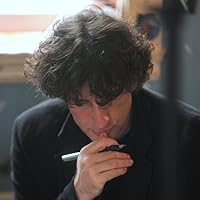
“It has been said that civilization is twenty-four hours and two meals away from barbarism.”
― Good Omens: The Nice and Accurate Prophecies of Agnes Nutter, Witch
― Good Omens: The Nice and Accurate Prophecies of Agnes Nutter, Witch

“Within a system which denies the existence of basic human rights, fear tends to be the order of the day. Fear of imprisonment, fear of torture, fear of death, fear of losing friends, family, property or means of livelihood, fear of poverty, fear of isolation, fear of failure. A most insidious form of fear is that which masquerades as common sense or even wisdom, condemning as foolish, reckless, insignificant or futile the small, daily acts of courage which help to preserve man's self-respect and inherent human dignity. It is not easy for a people conditioned by fear under the iron rule of the principle that might is right to free themselves from the enervating miasma of fear. Yet even under the most crushing state machinery courage rises up again and again, for fear is not the natural state of civilized man.”
― Freedom from Fear
― Freedom from Fear

“My message to you is this: pretend that you have free will. It's essential that you behave as if your decisions matter, even though you know they don't. The reality isn't important: what's important is your belief, and believing the lie is the only way to avoid a waking coma. Civilization now depends on self-deception. Perhaps it always has.”
― Stories of Your Life and Others
― Stories of Your Life and Others

“My 'morals' were sound, even a bit puritanic, but when a hidebound old deacon inveighed against dancing I rebelled. By the time of graduation I was still a 'believer' in orthodox religion, but had strong questions which were encouraged at Harvard. In Germany I became a freethinker and when I came to teach at an orthodox Methodist Negro school I was soon regarded with suspicion, especially when I refused to lead the students in public prayer. When I became head of a department at Atlanta, the engagement was held up because again I balked at leading in prayer. I refused to teach Sunday school. When Archdeacon Henry Phillips, my last rector, died, I flatly refused again to join any church or sign any church creed. From my 30th year on I have increasingly regarded the church as an institution which defended such evils as slavery, color caste, exploitation of labor and war. I think the greatest gift of the Soviet Union to modern civilization was the dethronement of the clergy and the refusal to let religion be taught in the public schools.”
― The Autobiography of W.E.B. Du Bois: A Soliloquy on Viewing My Life from the Last Decade of Its First Century
― The Autobiography of W.E.B. Du Bois: A Soliloquy on Viewing My Life from the Last Decade of Its First Century

“الحضارة تُعلِّم أما الثقافة فتُنور. تحتاج الأولي الى تعلم, اما الثانية فتحتاج الى تأمل”
― الإسلام بين الشرق والغرب
― الإسلام بين الشرق والغرب
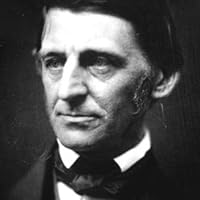
“In the highest civilization, the book is still the highest delight. He who has once known its satisfactions is provided with a resource against calamity.”
―
―

“Where do you. come from?" Frank challenged, puffing his chest, a little bolder now that he could breathe. "Some of us are starting to wonder."
"I come from civilization," Lucius retorted. "You wouldn't be familiar with the territory. Now pick up the books.”
― Jessica's Guide to Dating on the Dark Side
"I come from civilization," Lucius retorted. "You wouldn't be familiar with the territory. Now pick up the books.”
― Jessica's Guide to Dating on the Dark Side

“We stand now where two roads diverge. But unlike the roads in Robert Frost's familiar poem, they are not equally fair. The road we have long been traveling is deceptively easy, a smooth superhighway on which we progress with great speed, but at its end lies disaster. The other fork of the road — the one less traveled by — offers our last, our only chance to reach a destination that assures the preservation of the earth.”
― Silent Spring
― Silent Spring
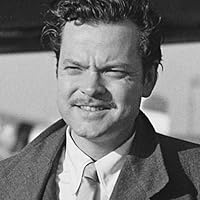
“If there hadn't been women we'd still be squatting in a cave eating raw meat, because we made civilization in order to impress our girlfriends.”
―
―
All Quotes
|
My Quotes
|
Add A Quote
Browse By Tag
- Love Quotes 97k
- Life Quotes 75.5k
- Inspirational Quotes 72.5k
- Humor Quotes 43.5k
- Philosophy Quotes 29.5k
- Inspirational Quotes Quotes 27k
- God Quotes 26k
- Truth Quotes 23.5k
- Wisdom Quotes 23.5k
- Romance Quotes 23k
- Poetry Quotes 22k
- Death Quotes 20k
- Happiness Quotes 18.5k
- Life Lessons Quotes 18.5k
- Hope Quotes 18k
- Faith Quotes 18k
- Quotes Quotes 16.5k
- Inspiration Quotes 16.5k
- Spirituality Quotes 15k
- Religion Quotes 15k
- Motivational Quotes 15k
- Writing Quotes 14.5k
- Relationships Quotes 14.5k
- Life Quotes Quotes 14k
- Love Quotes Quotes 13.5k
- Success Quotes 13.5k
- Time Quotes 12.5k
- Motivation Quotes 12k
- Science Quotes 11.5k
- Knowledge Quotes 11k


